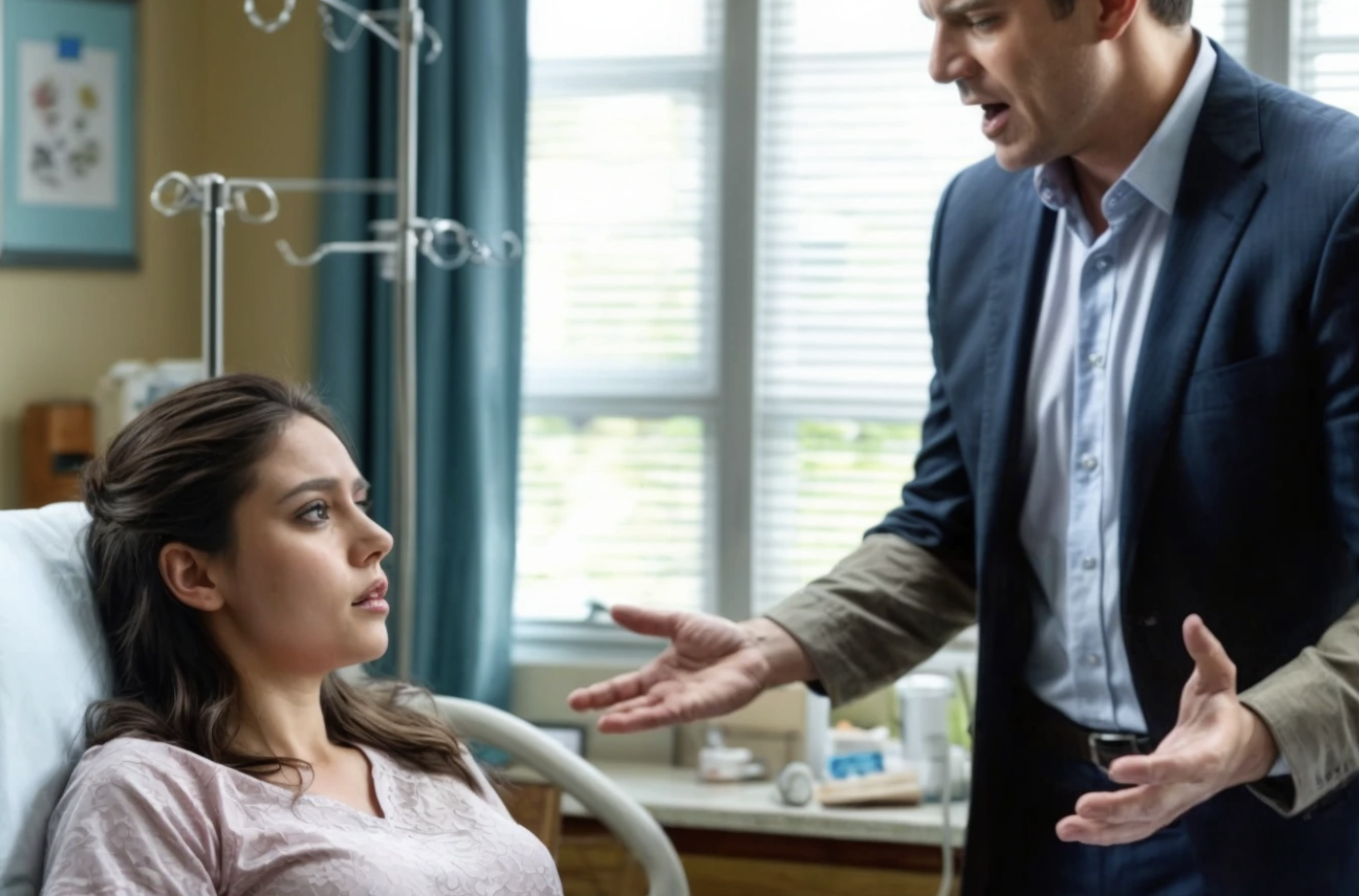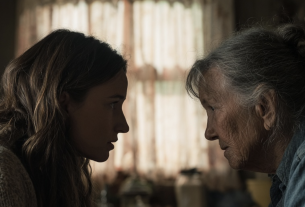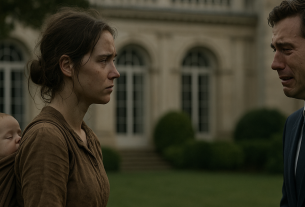I stood in front of the mirror, staring at my reflection as if trying to see the person I used to be. But instead of a confident, radiant woman of thirty-two, I saw a pale, exhausted shadow. My skin had lost its former glow, turning gray as if lifeless. Deep shadows lay under my eyes—not just signs of fatigue, but impressions of the weight of all the months I had lived through. My hair, once flowing and vibrant, now lay dull, as if it too had surrendered, lost its strength. I didn’t recognize myself. And it wasn’t only because of the illness—it certainly played its role, but no less cruel was the life unfolding around the diagnosis. Stage two cancer. Just three months ago, these two words had abruptly changed my reality. From a future full of plans, I suddenly found myself wondering if there would be a future at all.
But let’s go back a little. Five years ago… how different everything was then. Back then, I believed the world was a field of opportunities spread out at my feet. I held a red diploma from the Faculty of Economics, and I was just starting my career as a junior analyst in the marketing department of GlobalTech—a giant in the business world. It wasn’t just a job—it was my passion. I poured my soul into every project, working from morning till night, losing track of time. And the results were quick to follow. My boss, Elena Viktorovna, often said:
“Marina, you have an amazing analytical mind. If you keep working this hard, in a couple of years you won’t just lead a department—you’ll head an entire division.”
Those words gave me confidence. I was ready for any challenge, ready to move forward no matter what. Colleagues joked and called me “the Iron Lady,” but I just smiled in response. Personal life? That could wait. Right now, my career was everything. I was sure everything was ahead of me. But fate loves to play its games.
It was during this time, amid business meetings and presentations, that I met Lev. At first, it was just a corporate party celebrating the successful launch of an ad campaign for a major fast-food chain. I didn’t want to go—I felt too busy, with so much work left. But my friend Rita literally dragged me out of the office, insisting I needed a break.
The party was held in one of the city’s most luxurious hotels. The atmosphere was festive: music, laughter, crystal chandeliers sparkling, and the scent of a buffet. I headed to the table with snacks to grab a bite when I suddenly bumped into a tall, handsome brunette. He clumsily spilled a glass of orange juice on me, blushed, and started apologizing. I smiled to reassure him, and we started talking.
It turned out his name was Lev, and he worked as a manager at the hotel. We had so much in common! He told stories about his adventures with guests, the strange and funny situations that happen in hotel life. I shared my own office stories—about colleagues, deadlines, and the crazy ideas of the creative team. We laughed, chatted, and time flew by unnoticed.
He confessed he had always dreamed of working in a big corporation like mine, but after university, he got a job at the hotel and stayed there. I promised to help and offered to check for vacancies at GlobalTech. He smiled gratefully and asked for my phone number.
The next day, he called and invited me on a date. I agreed, though I was usually cautious and didn’t rush into relationships. Our first date was at a cozy café downtown. I was a bit nervous—I hadn’t been on such dates for a long time—but Lev turned out to be exceptionally charming and attentive. Over dessert, he confessed with a warm smile:
“You know, I usually don’t rush into relationships, but with you, I want to break all my rules.”
From then on, our relationship developed rapidly. Within a month, we were practically living together. Lev stayed at my place more often, and I didn’t mind—I felt good with him. He said I was special, that he had never met anyone like me before, and that he was incredibly lucky. I felt the same. It seemed I had found my other half. He was caring, attentive, always listened, supported, and gave advice. With him, I felt loved, needed, alive.
But gradually, troubling shades began to tint our idyll. I started noticing that Lev spoke too often about his mother—Alisa Petrovna. He could suddenly rush to her in the middle of the night if she complained about feeling unwell or just loneliness. I gently suggested postponing it until morning, but he replied:
“My mother is the only one I have, Lyuba. She has no one but me. I just have to take care of her.”
I tried not to pay it much mind, thinking caring for parents was noble. But over time, the situation worsened. Six months after we met, Lev proposed. It happened by the sea at sunset. He got down on one knee, took out a velvet box, and my heart stopped. I wasn’t expecting it, but I said “yes” without hesitation.
The wedding was modest but very touching—only close family. I shone in my white dress, and Lev looked at me with such love that I felt I could fly. We moved into my apartment, and I continued working, climbing the career ladder. Lev stayed at his position but was proud of me, supportive, calling me smart. I liked creating a cozy home, caring for my husband, building a family life.
However, each day, the shadow of Alisa Petrovna grew longer. She called Lev several times a day, complaining about her health, demanding attention. Lev dropped everything and ran to her. I tried to explain that she was manipulating him, but he wouldn’t listen:
“Mom worries about me. She means well. You just don’t understand her.”
Her demands became increasingly absurd: expensive gifts, new phones, help with repairs. Lev bought everything for her, even when we ourselves needed money. I couldn’t stand it anymore and told him exactly what I thought:
“She controls you completely! Can’t you see how she manipulates you?”
Lev frowned and said:
“You’re selfish and cold. You don’t understand what it means to be a son.”
After that, our relationship grew cold. I threw myself into work, taking charge of a large project that required all my soul. Lev seemed even pleased—now he could spend more time with his mother without fearing my reproaches.
I stood at a crossroads. Life that once seemed an endless sequence of opportunities had turned into a winding road of pain, disappointment, and betrayal. And though the world kept moving as if nothing happened, inside me everything was collapsing, breaking, crumbling like a sandcastle battered by the surf.
It all started with a vague feeling of weakness. I blamed it on overwork, constant stress, endless deadlines, and sleepless nights. But symptoms worsened—dizziness, nausea, rapid weight loss, constant fatigue that didn’t go away even after sleep. I knew I couldn’t delay any longer—I had to see a doctor.
And then, in the silence of the office, among medical terms and cold light, came the diagnosis like thunder from a clear sky: cancer, stage two. The word “cancer” hung in the air like a sentence. I couldn’t breathe. The world shrank to the size of the room, then shattered into pieces. What now? What to do? How to live on? How to face my parents? How to tell Lev?
But I gathered my remaining strength. I knew if I fell, they would fall too. I had to be strong. Mom hugged me and said we would get through it, that they would always be there. Father, my rock and support, squeezed my hand so hard I felt his pain. He didn’t cry, but despair flashed in his eyes, which he immediately hid.
At first, Lev really tried to be there. He drove me to exams, waited in corridors, helped me up after procedures. I saw how hard it was for him, but then I didn’t understand it was only the beginning of his withdrawal. His attention gradually became distracted. He stayed late at work more often and disappeared to his mother on weekends, justifying it by saying she needed his support too. I felt like I was sinking into an abyss of loneliness, where even being next to a loved one was scary and lonely.
But I kept working. Despite the pain, weakness, and shaking after chemotherapy, I went to the office, did tasks, wrote reports. I was saving every ruble for surgery—the very one that could give me a chance to survive. The doctors said the operation was complicated but necessary. My doctor warned honestly: if we delay, chances will rapidly diminish. But if we do it soon, I have a chance.
That chance became my only support. I economized on everything: food, medicine, even shoes. I denied myself the bare necessities because I knew this was my life. But Lev… Lev didn’t even notice my efforts. He continued spending our shared money on his mother’s whims—new fur coats, expensive medicine, vacations at sanatoriums. He didn’t see how I was wasting away, how every day was a fight for survival.
And then one day I came home early and caught Lev rummaging through my things. He justified it by saying he was looking for documents, but I didn’t believe him. I knew he was searching for my money. My last hopes. I asked directly:
“What are you looking for here?”
He flinched, spun around sharply, and his voice shook:
“I… was looking for my documents…”
“Don’t lie to me, Lev! I know you’re looking for money. My money for the operation!”
“What money?” he snapped. “Do you think your surgery will help? My mother urgently needs money for treatment! She has heart problems!”
“I have cancer, Lev! Cancer! Do you even understand what you’re saying?”
“Stop hysterics! You’re selfish! Only thinking about yourself! What am I supposed to do with a mother who’s helpless without me?”
Those words hurt deeper than any scalpel. I couldn’t take it, grabbed my bag, and ran out. I wandered the streets, crying, cursing my fate, recalling that evening by the sea when he got down on one knee and offered me his hand and heart. How much had changed since then…
Late at night, I returned home and saw Lev lying drunk on the couch. I didn’t wake him. I had no strength for fights anymore. In the morning, a phone call woke me up. It was my boss. I was late for work. Trying to get up, I felt dizzy and fainted.
I woke up in the hospital. My father was sitting beside me—scared but strong. He said he found me unconscious in the apartment. And Lev, as always, wasn’t around—he was busy with an important meeting with his mother. Bitter irony.
The doctor said I needed urgent surgery. Very expensive. Then Lev came into the ward. His first words weren’t about my health or condition, but about his mother:
“Well, what are you lying here for? People are waiting at home!”
“Lev, I have cancer. I need surgery.”
“And where’s the money? We don’t have any. Lie here, maybe it’ll go away.”
I screamed, unable to hold back pain and anger:
“Leave! I don’t want to see you anymore!”
Later he called and demanded to know where I hid the money:
“Where’s the stash, you bastard? I urgently need money for a trip for my mother! She needs to recover! Your surgery won’t help you anymore!”
After that call, I asked my father to kick Lev out of the apartment. I didn’t want to see him anymore. Didn’t want to hear him.
In the morning, my father found Lev dead. Suspiciously drunk, he stumbled on the doorstep and hit his temple on a sharp edge of a nightstand. Death was instantaneous.
I found out everything after the operation. My parents sold the country house to pay for treatment. I didn’t feel grief. Only relief. Relief that this nightmare was over.
Over time, I began to recover. Returned to work. Started communicating with friends. The world became colorful again.
Alisa Petrovna, of course, blamed me for her son’s death:
“You drove him to this! You killed my Lev!”
And I just shrugged and said:
“That’s his karma.”
And though this path was painful, it gave me strength. It taught me to be strong. It taught me to value myself, my life, my independence. I became wiser. Stronger. And now I know: I can handle anything. I am no longer weak, no longer defenseless. I am a woman who has walked through fire and emerged not burned, but strengthened.
And I am grateful to fate. For everything. For pain, for disappointments, for betrayal. Because only by going through this did I become who I am now.



